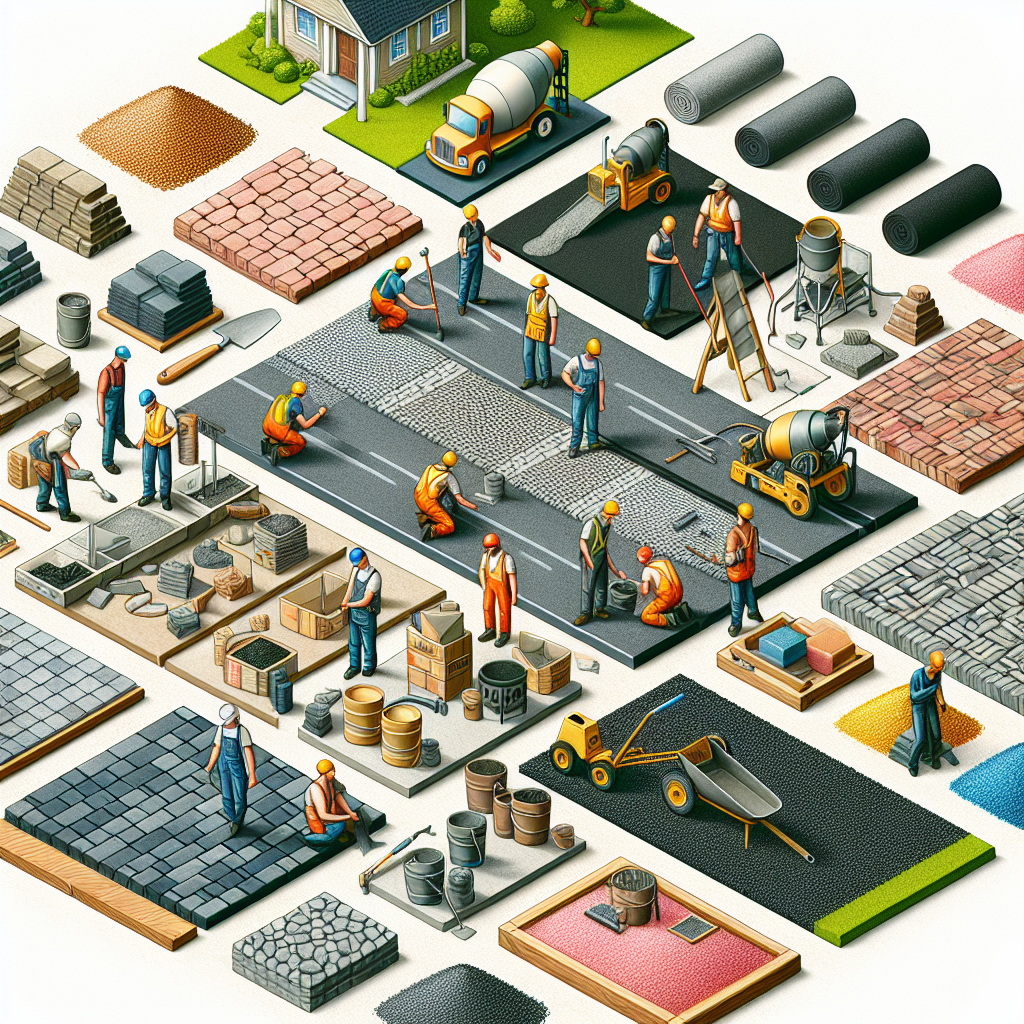When it comes to home improvement, the driveway often takes a backseat to more visible features like landscaping and exterior painting. However, an attractive and durable driveway can enhance your home’s curb appeal, raise property value, and provide a safe place for vehicles. But with so many driveway materials available, how do you choose the right one? In this guide, we’ll walk you through the various options, helping you make an informed decision that suits your needs and preferences.
Understanding Your Driveway Needs
Before diving into material options, it’s essential to evaluate your specific needs. Ask yourself the following questions:
- How much traffic will my driveway see? Consider the number and type of vehicles it will support.
- What is my budget? Be realistic about what you can afford, including installation costs and maintenance.
- What climate considerations do I need to address? Certain materials may perform better in extreme weather conditions.
- What style best complements my home? Your choice should harmonize with the overall aesthetic of your property.
Common Driveway Materials
1. Asphalt
Pros:
- Cost-effective and quick to install.
- Flexible and can handle varying temperatures.
- Smooth surface that provides excellent traction.
Cons:
- Requires periodic maintenance, such as sealing.
- Can soften in extreme heat.
Asphalt is a popular choice for homeowners looking for an economical yet functional solution. Its dark hue helps melt snow quickly, making it ideal for colder climates.
2. Concrete
Pros:
- Durable and long-lasting, with a lifespan of 30 years or more.
- Low maintenance compared to asphalt.
- Available in various finishes and colors for enhanced aesthetics.
Cons:
- Higher initial installation costs.
- Prone to cracking in freeze-thaw cycles without proper care.
Concrete offers a robust solution for high-traffic areas. Whether you opt for a plain finish or decorative variations, concrete can significantly enhance your home’s appearance.
3. Gravel
Pros:
- Extremely affordable and easy to install.
- Provides excellent drainage capabilities.
- Available in various colors and sizes for a unique look.
Cons:
- Requires regular maintenance to keep the surface level and prevent weeds.
- Can be difficult for smaller vehicles to navigate.
Gravel driveways add a rustic charm to your property, making them a popular choice in rural areas. However, be prepared for some upkeep to maintain their appearance.
4. Pavers
Pros:
- Highly customizable, available in various styles, colors, and shapes.
- Durable and can withstand heavy loads.
- Excellent drainage properties.
Cons:
- More expensive to install than other options.
- Some settling may occur over time, requiring repairs.
Paver driveways are attractive and versatile, allowing homeowners to express their creativity. With proper installation, they can last for decades without much maintenance.
5. Permeable Paving
Pros:
- Environmentally friendly, allowing water to seep through to prevent flooding.
- Reduces runoff and supports groundwater recharge.
- Available in various materials such as porous asphalt, porous concrete, and permeable pavers.
Cons:
- Can be more expensive to install than conventional materials.
- Requires regular maintenance to keep the pores free of debris.
Permeable paving is becoming increasingly popular as homeowners aim for eco-friendly solutions. It’s a smart choice for those in areas prone to heavy rainfall or flooding.
Factors to Consider When Choosing a Driveway Material
Maintenance Requirements
Different materials come with varying maintenance needs. Gravel may require more frequent upkeep, while concrete and asphalt may need sealing every few years. Evaluate how much time and effort you’re willing to invest in maintaining your driveway.
Aesthetics
Your driveway should complement your home’s architectural style and landscaping. Consider the color, texture, and pattern of your chosen material to ensure they harmonize with your property.
Installation Costs vs. Long-Term Value
While it’s tempting to go for the cheapest option upfront, consider the long-term value each material delivers. Higher-quality materials may cost more initially but could save you money in repairs and replacements down the road.
Conclusion: Making Your Choice
Choosing the right driveway material is more than an aesthetic decision; it’s about understanding your lifestyle, budget, and the environmental factors that may impact your choice. We’ve covered a range of options from asphalt to permeable paving to help you weigh your options effectively.
Take your time, do thorough research, and consult professionals if needed. A well-chosen driveway not only enhances your home’s exterior but also adds to the comfort and convenience of your daily life. So, pave the way to a beautiful and functional entrance to your home!


